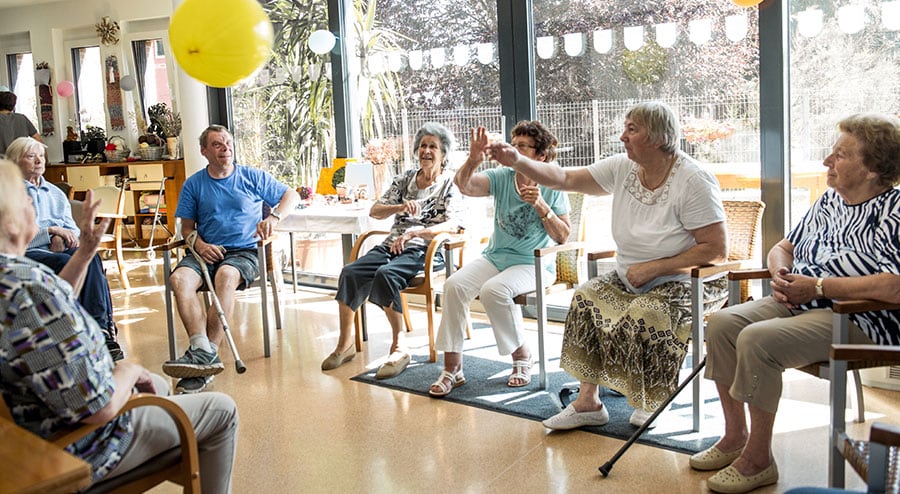Finding the Right Assisted Living Remedy for Tailored Memory Care Programs
The procedure of selecting an ideal assisted living solution for customized memory care programs needs a nuanced understanding of specific demands, especially as they associate to cognitive problems such as Alzheimer's and mental deterioration. It is vital to analyze not just the qualifications of the team but also the accessibility of personalized care strategies that accommodate the certain challenges locals deal with. Additionally, the effect of engaging activities and an encouraging neighborhood can not be overstated. As we discover these elements, the inquiry remains: what truly constitutes an ideal setting for memory care?
Comprehending Memory Care Demands
Comprehending the unique memory treatment requirements of people with cognitive problems is crucial for providing effective support and improving lifestyle. Cognitive impairments, consisting of Alzheimer's disease and other kinds of mental deterioration, dramatically influence a person's capacity to process details, communicate, and maintain freedom. Because of this, tailored methods are important in resolving these challenges.
People with memory problems frequently experience confusion, state of mind changes, and disorientation, necessitating a supportive and structured setting. Memory treatment programs need to concentrate on creating a secure area that encourages social interaction, cognitive involvement, and emotional well-being. This can be achieved via specialized tasks, such as memory games, art therapy, and reminiscence sessions, which advertise cognitive stimulation and preserve personal identity.

Assessing Staff Credentials
The credentials of personnel members in memory care programs are crucial to providing high-quality support for individuals with cognitive disabilities. Examining staff certifications involves analyzing both academic history and practical experience in senior citizen care, specifically in memory-related problems such as Alzheimer's and various other types of mental deterioration.
Seek personnel that have pertinent qualifications, such as Qualified Dementia Expert (CDP) or specialized training in memory treatment. These qualifications indicate a dedication to recognizing the complexities of cognitive decrease and effective interaction methods tailored to residents' unique requirements. On top of that, ask about continuous training chances that team participants take part in, as continuous education and learning is essential in a field that develops swiftly with new research study and finest techniques.
Additionally, analyze the staff-to-resident ratio, as this directly impacts the high quality of treatment. Inevitably, a professional team is extremely important in cultivating an atmosphere that improves the dignity and high quality of life for individuals in memory treatment.
Importance of Personalized Treatment Plans
Personalized treatment strategies play an important function in boosting the wellness of people in memory treatment programs. These plans are customized to the unique demands, preferences, and capabilities of each citizen, making certain that treatment is both relevant and efficient. By thinking about factors such as case history, cognitive function, and personal passions, caregivers can develop a detailed strategy that promotes self-respect and regard for each and every individual.
The value of customized treatment plans prolongs past fundamental care demands; they cultivate a complacency and familiarity, which is crucial for individuals experiencing memory challenges. By resolving details behavioral patterns and psychological responses, caretakers can execute approaches that reduce anxiety and boost overall lifestyle.
In addition, personalized treatment strategies help with much better interaction amongst staff, relative, and healthcare service providers. This joint approach makes certain that every person involved is educated and aligned in their treatment efforts, resulting in more regular and efficient support. Inevitably, a well-structured tailored care plan is important in memory treatment programs, as it not only improves everyday living experiences however additionally adds to the long-lasting health and happiness of homeowners.
Involving Activities and Programs

Tasks such as art treatment, songs sessions, and memory therapy give avenues for self-expression and cognitive engagement. These purposeful interactions not only assist in maintaining cognitive capabilities however likewise use psychological advantages, minimizing sensations of isolation and stress and anxiety that typically come with memory loss.
In addition, organized group activities can urge socialization, which is critical for psychological health - Assisted Living. Normal involvement in games, workout classes, and community outings creates an environment of sociability and support. Customized programs that consider individual interests and histories better improve involvement, making tasks more significant and effective
Including innovation, such as memory games and online reality experiences, can additionally serve to enrich the every day lives of residents, providing ingenious means to boost cognitive feature. Ultimately, a concentrate on appealing activities and programs is crucial for promoting an encouraging atmosphere that advertises all natural well-being in memory treatment settings.

Assessing Community Environment
When reviewing a community setting for memory care programs, it is essential to think about elements that contribute to the overall wellness and safety and security of citizens. The physical format of the community must prioritize accessibility and navigation, decreasing barriers while providing clear signage and acquainted spots. A secure environment is necessary to protect against locals from straying, which can posture security dangers.
In addition, the sensory facets of the area, such as lights, color design, and sound degrees, play a substantial role in boosting comfort and minimizing anxiety amongst locals. All-natural light and exterior areas advertise interaction with nature, promoting a comforting environment that can benefit cognitive feature.
An additional important element is the availability of trained team that comprehend the distinct requirements of individuals with memory impairments. Staff ought to be geared up to create a caring atmosphere that motivates social communication and emotional assistance.
Last but not least, the sense of neighborhood and belonging is essential. Involving family members participation and chances for residents to develop links with peers can dramatically enhance their general top quality of life. Assisted Living. By carefully evaluating these factors, households can make informed decisions concerning one of the most ideal memory treatment community for their liked ones
Final Thought
Finally, choosing an appropriate assisted living solution for customized memory treatment programs necessitates a detailed analysis of private needs and choices. Focusing on staff credentials, individualized care Go Here plans, engaging activities, and a helpful area atmosphere is necessary for boosting the quality of life for homeowners encountering cognitive difficulties. By resolving these vital factors, families can ensure that their enjoyed ones obtain the necessary support and treatment to foster emotional health and cognitive excitement in a nurturing setup.